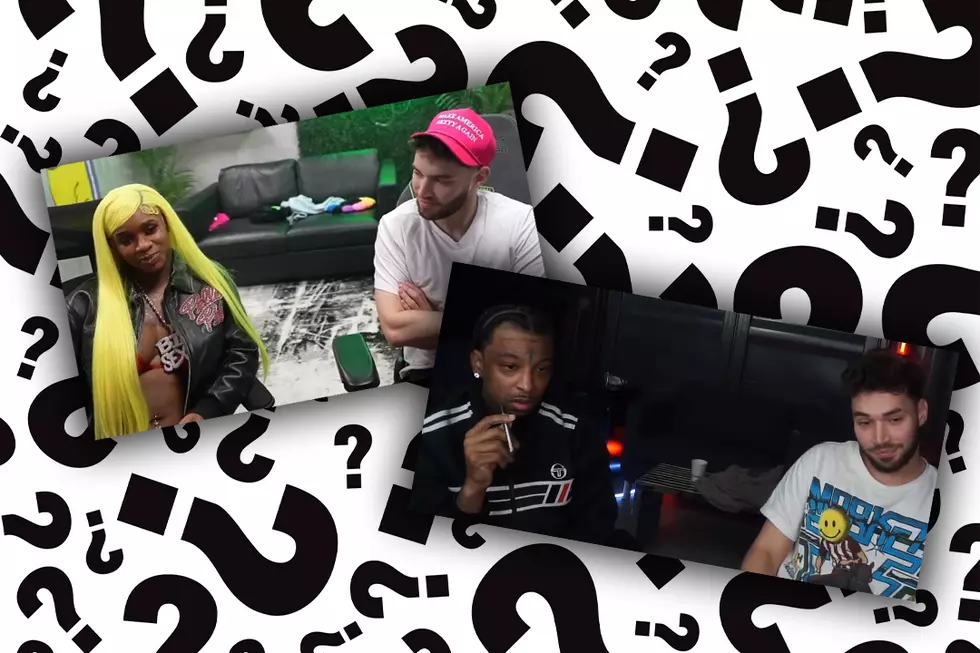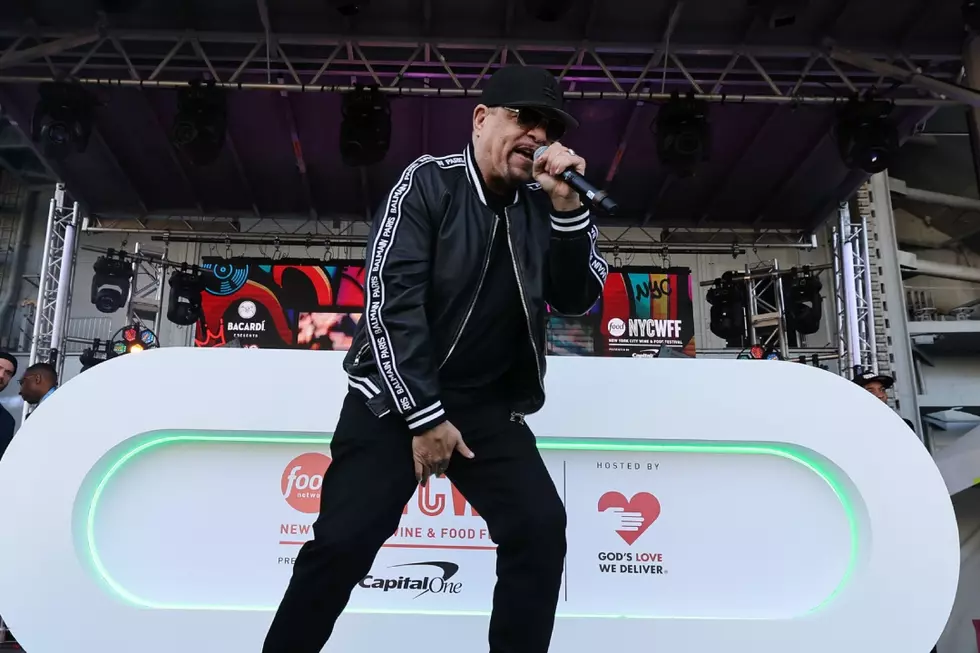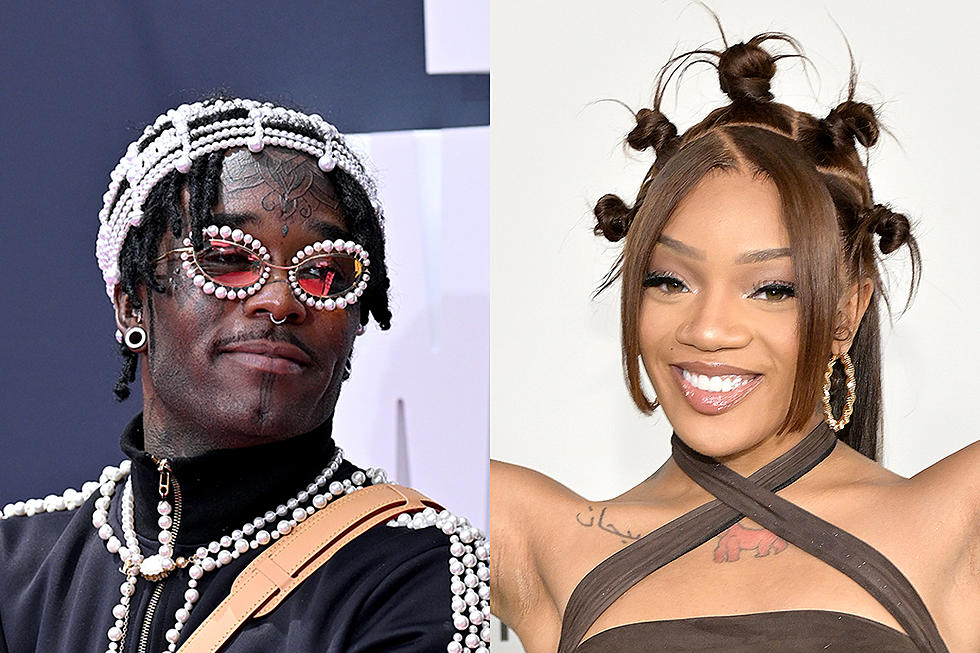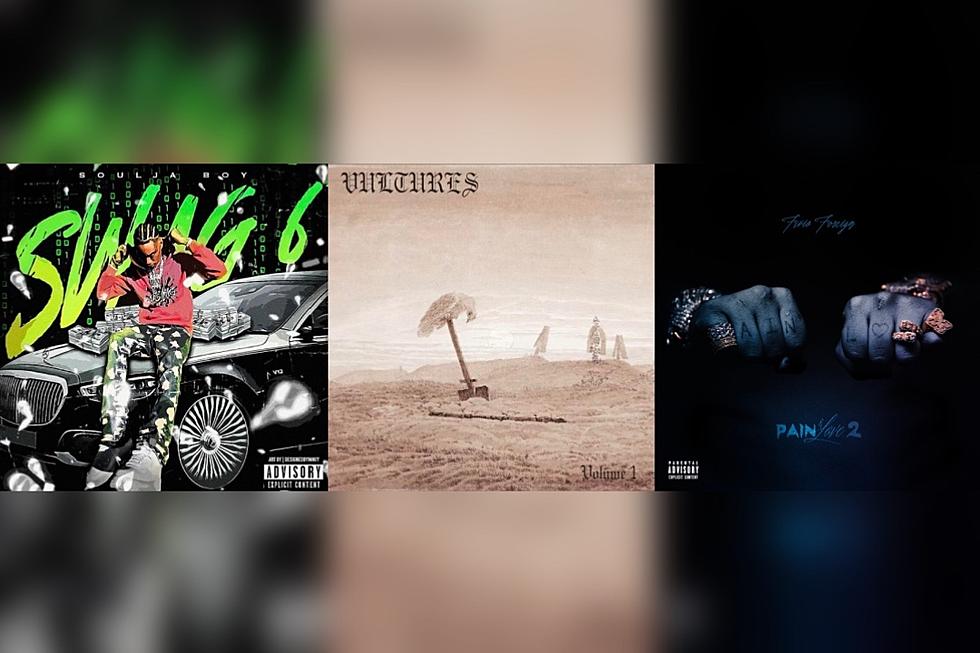
FEATURE: Soulja Boy,The Kid Stays In The Picture
The boy genius sits at a desk with his laptop open, compulsively refreshing his Gmail account. He is the boy genius who, according to Ice-T, single-handedly killed hip-hop. He has three cuts in each eyebrow. He wears a gaudy pinky ring on his right hand, a Superman chain that dangles down to his naval, and really big earrings. He ignores the upmarket Chinese takeout on the glass table. He’s too busy on the computer. E-mailing. Chatting. MySpacing. YouTubing. Working, basically. After all, this is how the boy became the boy genius. But he’s distracted. This 21st-century digital boy just got offended by something so analog, so 20th century—a magazine.
The boy genius’s hype man, a friend from Mississippi nicknamed Arab (pronounced Ayy-rab, like the ethnic slur), flips through the December 2008 issue of XXL magazine. It features 10 young rappers. “The 10 Freshmen: Hip-Hop’s Class of ’09 Attacks” screams the cover line. He is not one of those 10 freshmen. And the boy genius, DeAndre “Soulja Boy” Way, 18, is perplexed, upset even, over the snub.
“That was a big fuck up, XXL,” he says. “What the fuck? Nah, I’m just fuckin’ with y’all.” Is he really?
He continues. “My first album dropped on October 2, 2007. They did the ‘Leaders of the New School’ edition last year, and I didn’t make that. This year, Soulja Boy is still not on the cover. What’s the deal? Over a million records sold. Over five million ringtones. Most controversial rapper, period, in the game. I can’t get a slot on the cover, man?”
Would you really want to share the cover with nine people?
“Fuck no. I want to be on there by myself.”
Why do you think you’re not on the cover?
“Because XXL is hating. That’s the only logical explanation. I thought it was because I hadn’t sold enough records—but then I went platinum. Then I thought it was because of my lyrics. I didn’t really have that much depth or content. Now that I stepped my game up, and I’m looking at the dudes on the cover—I’m taking niggas out. Let me see that cover.”
Arab passes him the magazine. “I’m not calling names, because I don’t want to start nothing. But I know at least four or five of these niggas I would take out. At the same time—I’m not knocking none of them; they’re doing their thing—I haven’t heard of half of those dudes. But Soulja Boy isn’t on the XXL cover. What the fuck? It’s not that I’m bitching. I’m not on no Kanye West cocky-type shit.”
Actually, it sounds just like some Kanye West cocky-type shit.
“All the stuff that I’m doing in the industry, and I’m not getting recognized for it. I got money. I got millions.”
Millions?
“Yeah.”
You have millions in your back account?
“Yeah, I got millions. I sold millions. I did a lot of things in the industry.”
Like it or not, Soulja Boy is right. He states nothing but the facts. His debut album, Souljaboytellem.com, was released on October 2, 2007. It sold more than a million copies. His first single, “Crank That (Soulja Boy),” sold more than five million ringtones. And he is the most controversial rapper, period, in the game. He is also a music-industry pioneer. Without Soulja Boy, there would be no Diddy Blog,
thisis50.com or Kanye University. “I consider myself an artist of the new school who re-, rev-… What’s that word? That big-ass R word?”
Revolutionized.
“There you go. I know how to say it, but you pronounce it better… Who revolutionized the game. I think I reinnovated the game.” He thinks for a moment, brow scrunched. “I didn’t reinnovate shit. I’m not a pioneer of shit. I just brought to light what artists should be doing. The computer, the Internet, period, is the key to selling records right now.”
No other rapper has ever adapted to technology like Soulja Boy. He didn’t need a Roc-A-Fella chain or Dr. Dre co-sign to get put on. His co-signs came from YouTube and MySpace. He recorded cute songs and dances, made them viral, and the kids ate ’em up. They were the embodiment of youth culture in America in 2007. “It wasn’t the music, it was the lifestyle,” says Mr. Collipark, who signed Soulja Boy to his Collipark Music that spring. “Everything he does has a purpose.”
The ultimate independent success story begins in the sticks of northwestern Mississippi, in the town of Batesville, population 7,776. During the summer of 2001, an 11-year-old DeAndre moved from his cash-strapped mother’s place in Atlanta to live with his father, Tracey Jenkins, an engineer technician, in Batesville. DeAndre was interested in hip-hop and computers. His favorite rappers were Master P and Birdman, and he dreamed of working as a video-game designer, Flash animator or computer programmer.
After school, DeAndre cut records in his bedroom using the FruityLoops program on his computer, a microphone and other equipment his dad bought from Wal-Mart. In late 2006, he posted the songs on soundclick.com and asked his father’s friend from college, Miami Mike, to book shows for him. Soon, he was onstage and itching to quit his job manning the grill at Burger King. “When I came back from [my first concert], I had a grip, dog,” he says. “I was going to quit Burger King. They used to hate me so bad. They weren’t feeling my music. In 30 minutes, I made more than I made in a whole year at Burger King. I was like, ‘Fuck Burger King. I don’t need this job.’”
He continued performing on the weekends and, most importantly, shouting out his MySpace page at concerts. “The Internet is working 24 hours a day,” says Miami Mike, who is now Soulja Boy’s tour manager. “This dude had this Internet presence, and the Internet is bigger than radio and TV. He put my numbers up on his MySpace page, and from there it was crazy.”
Strangely, Soulja Boy remained anonymous at his own high school. “Don’t nobody know who I am in Mississippi, because not everybody have computers,” he says. “But in Georgia, Chicago, Minnesota, St. Louis, New York, all the kids knew Soulja Boy.”
Anonymity wouldn’t last long, though. And neither would high school. With a closet full of Bathing Apes, a Superman chain and an eight-row grill (which he says earned him a suspension), he was bounced from a sophomore-year biology class for sleeping. “The teacher was like, ‘You must not care about school,’” he remembers. “‘You must not care about your education.’ I said, ‘No, I don’t care about school. I don’t care about education.’ My mom was one of those bookworm, nerdy muthafuckas that went to school, got her degree and got out of college and made no money and got no job. That shit hurt me. I’m like, ‘Why the fuck am I going to school when she didn’t even get no job?’ If you were going to make your whole life dedicated to school, it should be worth it. And to me, it wasn’t worth it to [graduate] and be making some shit like $100,000 a year. That ain’t shit. I’m thinking, Fuck that. And I walked out.” -THOMAS GOLIANOPOULOS
For more of the Kid Stays In The Picture Interview make sure to pick up XXL’s March issue on newsstands now.
More From XXL









